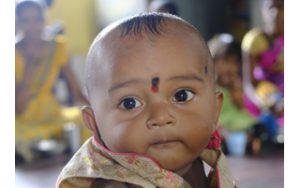
Enhancing Childhood Nutrition
Although there has been strong economic growth over the past 20 years, India is still home to 33% of the world’s malnourished children. In the
In the Tansa Valley, the average birth weight is 2.25 Kg, 8% lower than India’s national average of 2.7 Kg (just under six pounds). Underweight children are more susceptible to disease and more likely to experience malnutrition in their early years, which can impact physical and intellectual growth.
The Reproductive & Child Health Program educates pregnant women about the importance of regular prenatal care and monitors and manages any complications to ensure healthy pregnancies and safe deliveries. As well, it teaches mothers about nutrition, hygiene, and other important childcare topics.
Workshops and check-ups are held at the PRASAD Chikitsa Health Center, via the Mobile Hospital, and in Anganwadis – maternal health & play centers/preschools – where mothers can also participate in the Nutrition Program. 80% of infants born to mothers in the Reproductive & Child Health Program have birth weights above the national average. Because many villages are so remote, the Mobile Hospital also refers patients to other facilities, including obstetric clinics and hospitals, when necessary.
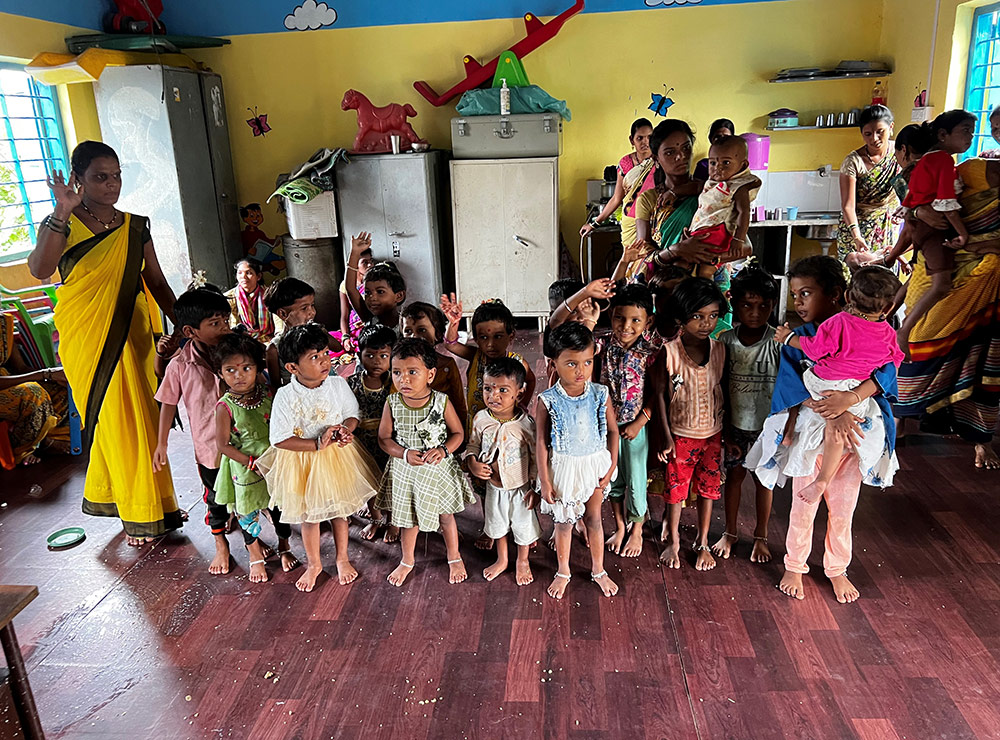
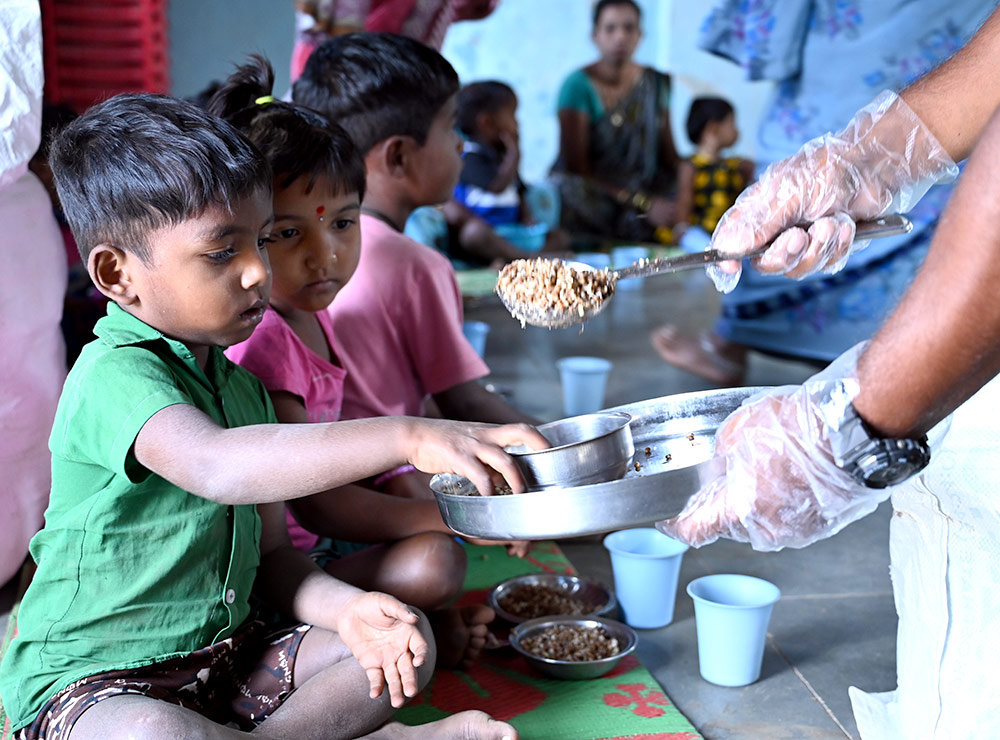
33% of the world’s malnourished children live in India. 50% of children under 5 in India are malnourished, and 60 million preschoolers have developmental disabilities. In the Tansa Valley, the situation is more dire as approximately 70% of area children are malnourished, and pregnant and nursing women have high calorie and protein deficits.
This matters because lack of proper nutrition impedes children’s physical and intellectual growth, makes them more susceptible to disease, and adversely affects their life-long earning power. The negative health and economic impact of malnutrition can affect communities for generations.
Since 1984, the Nutrition Program has provided 431,000 glasses of milk and more than 319,000 nutritious supplements to infants, children, and pregnant and nursing women.
Adding to the challenge, malnutrition is not always apparent, so, as part of the Nutrition program, PRASAD Chikitsa starts by screening extensively to identify all children who are suffering from Severe Acute or Moderate Acute Malnutrition (SAM & MAM).
The Program is serviced through Anganwadis – maternal health & play centers/preschools – located throughout the region. Here, children up to age six and pregnant and nursing mothers receive milk and nutritional snacks six days a week. Children also receive regular check-ups to ensure sustained health. Children are measured against World Health Organization growth standards, and we have seen a fall in malnutrition rates of program participants within just two years.
But there’s more to the story…The full story can’t be told without including our Farming Initiatives and Women’s Self-Help Groups. To maintain health and nutrition, families and communities need to be self-reliant and self-sustaining. Together, these programs provide business and agriculture training for women and men; a mechanism for saving and investing in each other; a rich, healthy environment; food for families; and crops to sell at market, which provides the money families need to purchase protein-rich foods to supplement their diets and reinvest in their farms.
Children need regular care, or minor health issues can escalate. In the Tansa Valley, poverty, lack of knowledge, and little to no available public transportation impact whether or not children receive proper medical care.
Twice a year, PRASAD Chikitsa runs Health Camps at schools in villages across the region to assess children’s health with a physical examination, dental checkup, vision screening, and distribution of medicine and vitamins as needed. The Camps take place in the monsoon season when chances of skin and respiratory infection are higher. Medical staff see approximately 2,000 students annually.
PRASAD Chikitsa believes that healthy children grow up to be healthy adults so it emphasizes health education and preventative measures just as much as treatment.
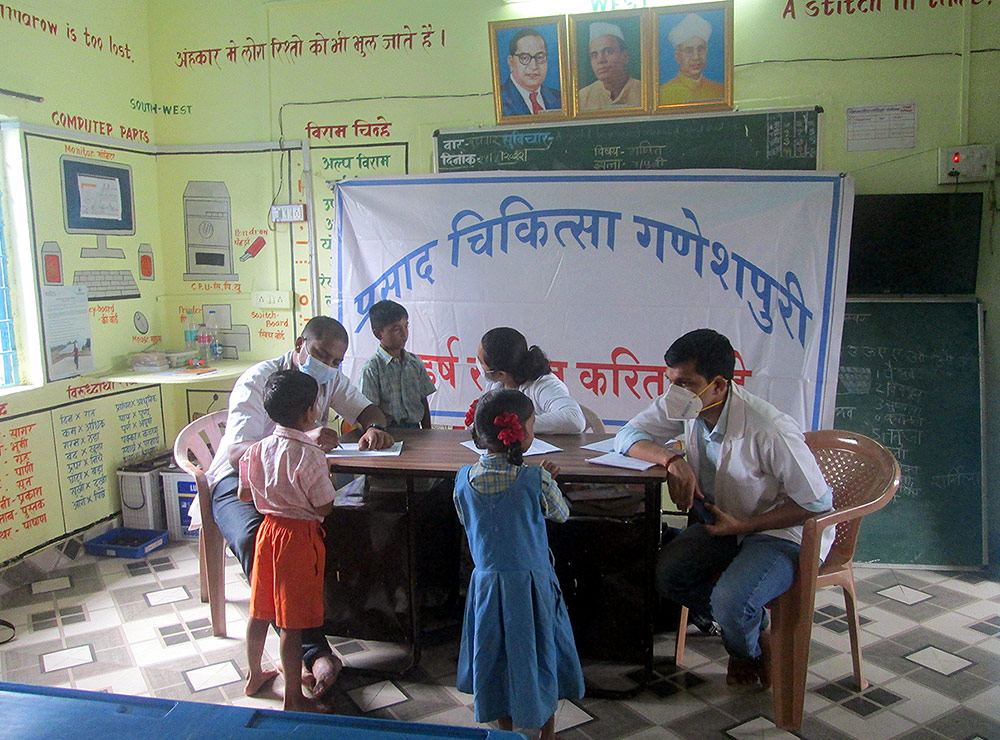
Stories

Although there has been strong economic growth over the past 20 years, India is still home to 33% of the world’s malnourished children. In the
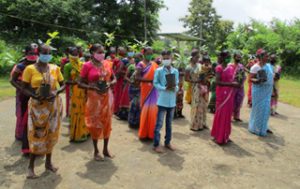
The pandemic has given each of us an extraordinary and unprecedented encounter with uncertainty. It has taught us to develop strength in handling adversity, practicing
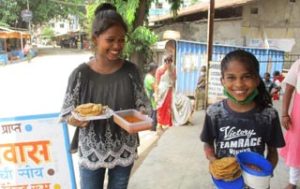
We believe that helping others makes us happier. We hope that your generous giving is also giving you this experience. In addition to transforming lives

Subscribe to our weekly newsletter
The PRASAD Project (PRASAD) is a not-for-profit organization committed to improving the quality of life of economically disadvantaged people around the world.
The PRASAD Project is approved by the Internal Revenue Service as a 501(c)(3) tax-exempt organization, and all donations are tax deductible to the extent allowed by law. The PRASAD Project Federal Identification Number (EIN) is 141751086.


Your monthly support will save lives. Become a monthly donor today.
Text here for the Donate Once option